In Maraban Jos, a densely populated community in Igabi Local Government Area (LGA) of Kaduna State, Kadijah Maiwada, a Community Health Worker (CHW) was visiting Ummulkhairi Musa and Hasiya Muhammad. Musa is a 39-year-old mother of six and Muhammad, an 18-year-old mother of one. While Musa is pregnant with her seventh child, Muhammad has a 3-month-old baby. This makes them ideal candidates for Maiwada’s programme, which is to improve the nutritional status of pregnant and lactating women in the area.
Maiwada is one of 200 health workers, working in 100 communities in 12 LGAs in Kaduna State, creating awareness and providing nutritional support for pregnant and lactating women, adolescent girls and young children under the Accelerating Nutrition Results in Nigeria (ANRiN) project. The project aims to reduce maternal and child mortality in Nigeria by addressing chronic malnutrition among pregnant and lactating women, adolescent girls, and children under five through the utilisation of cost-effective nutritional services.

Killing 2 birds with one stone
ANRiN is an initiative of the World Bank and the Federal Government of Nigeria, implemented in 12 states across Nigeria (Abia, Akwa Ibom, Gombe, Kaduna, Kano, Kogi, Kwara, Nasarawa, Niger, Oyo and Plateau States). The states were selected on the basis of their nutrition indices, as indicated in the 2018 National Demographic Health Survey. In Kaduna State, 48.1% of children under five years of age are moderately stunted, and 22.1% are moderately underweight, in addition, 48.4% of children between the ages of six to 59 months, are anaemic.
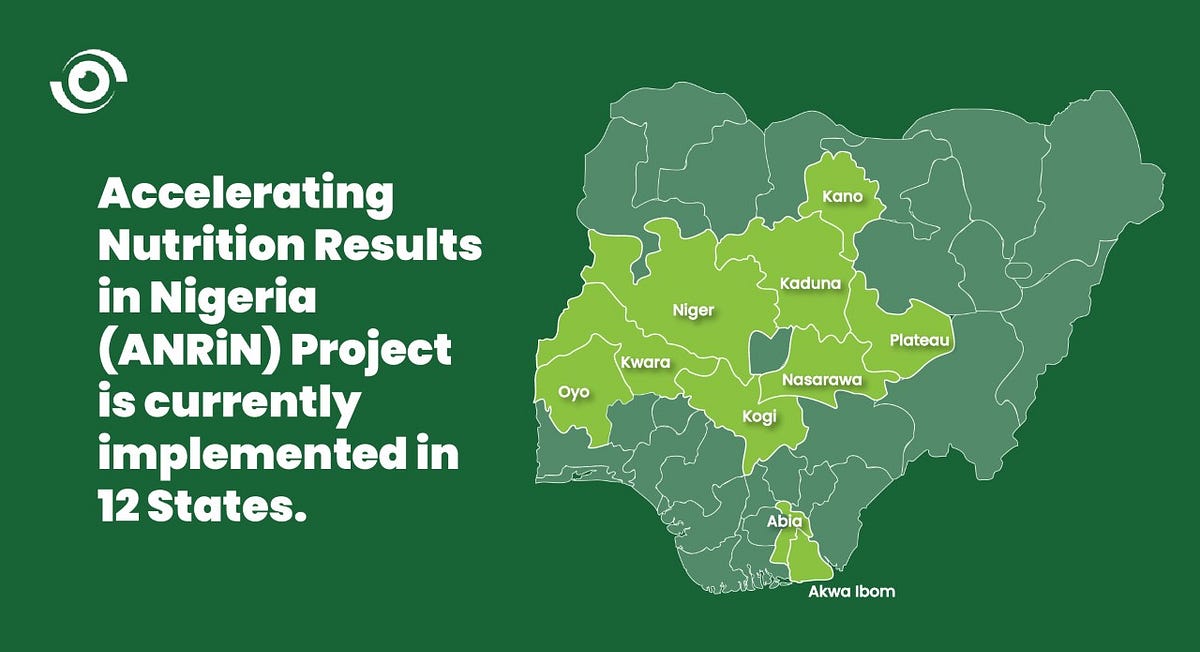
The project is being implemented in Kaduna State by the Society for Family Health (SFH) and eHealth Africa. Under the project, the organisations provide nutritional services including counselling and sensitisation on locally produced nutritious foods, iron and folic acid supplements to pregnant women, micronutrients powder to children between six and 23 months of age and intermittent preventive treatment of Malaria to pregnant women.
ANRiN Programme Manager in Kaduna State, Dr Zainab Muhammad said, under the project, CHWs are assigned specific house clusters in their communities. The CHWs identify adolescent girls, pregnant and lactating women in their clusters, offering them nutritional assessment and counselling in their homes. Nutritional supplements such as Vitamin A, iron and folic acid are also given to the pregnant women. During the home visits, those found to be malnourished are referred to the local primary healthcare centre (PHC), which is also supported by the ANRiN project. Each CHW is attached to the PHC in their community, which also has supervisory responsibility over their work.
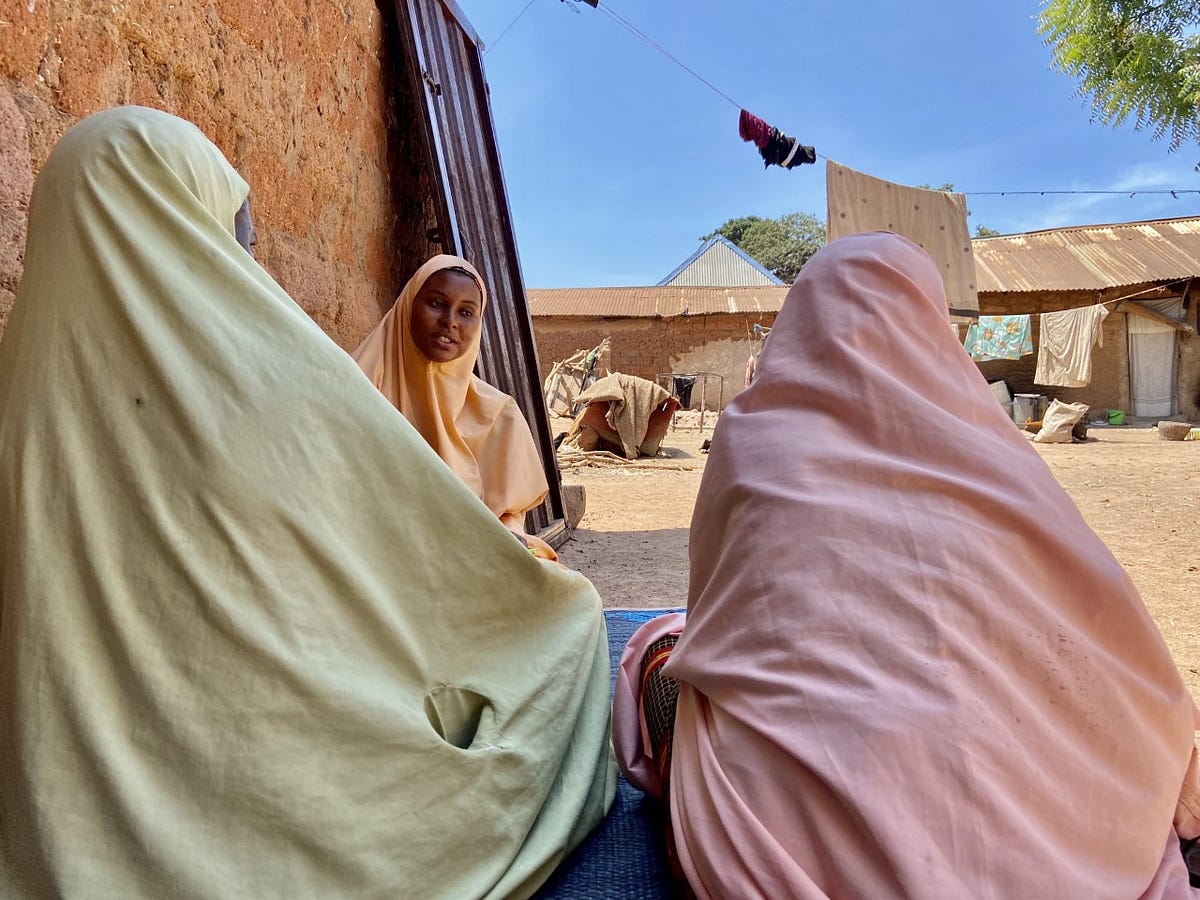
Maiwada spent some part of the 30-minute-long visit discussing the importance of eating a balanced diet using local ingredients. However, a significant amount of the time was spent discussing the importance of child spacing to ensure both mother and child maintain good nutrition. Muhammed had received this counsel repeatedly, when she was pregnant, therefore, after giving birth, she discussed the benefits of child spacing with her husband who agreed with the idea. Muhammad has been using contraceptives since then and according to her, she wants to have enough time to exclusively breastfeed her baby for six months and to continue to breastfeed him for 12 months after. “My body will also have enough time to recover, and I will be able to have enough money to eat the right kind of food so I can have enough breast milk,” she added. Musa, who is due in a few weeks, also said she will use contraception for the first time when she gives birth. “I don’t want to get pregnant while breastfeeding again. It has always cut short my period of breastfeeding as I had to always wean the baby,” she said. “It is important that you continue using the contraceptives till your baby reaches at least two years,” Maiwada said as she ended the visit and moved on to the next compound where her next cluster was waiting.
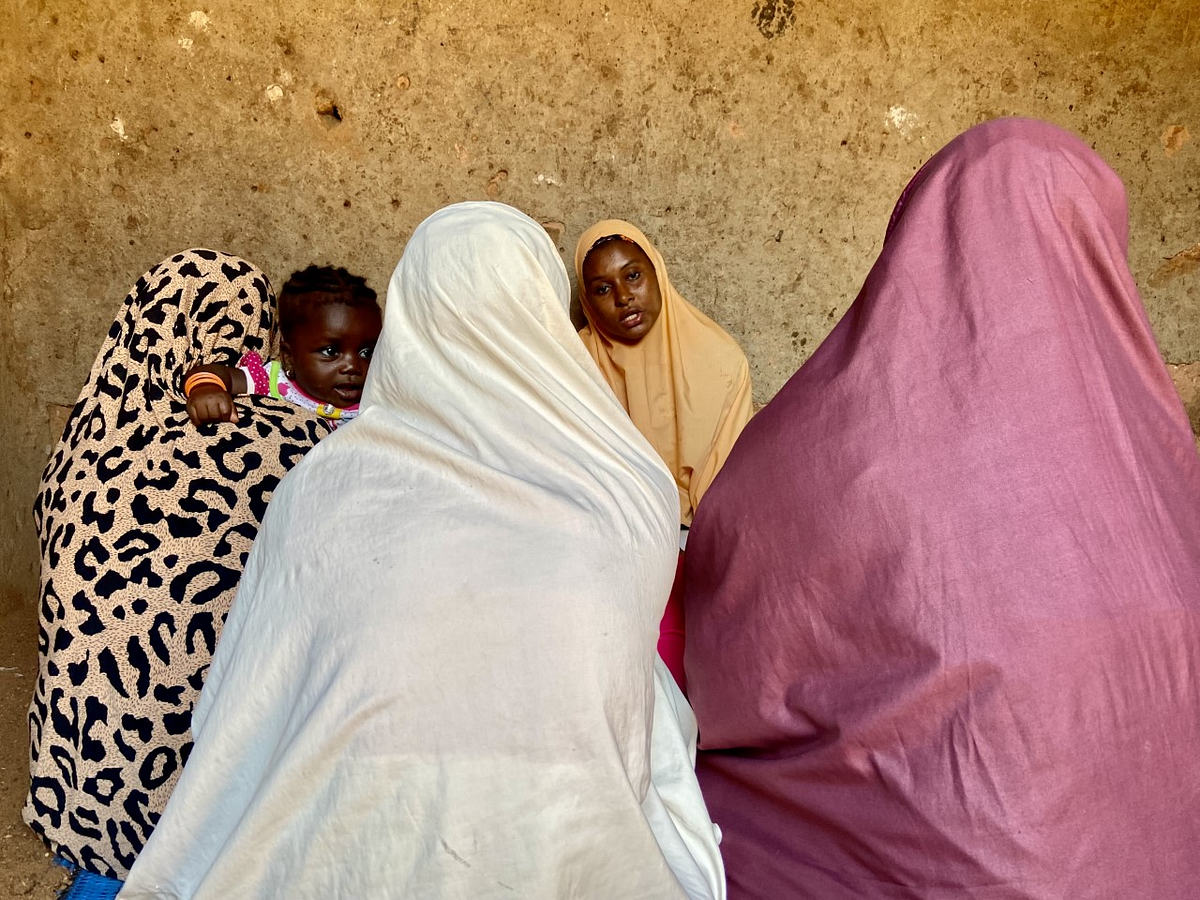
Ramatu Aliyu is a health worker in Anguwan Shanu, another densely populated community in Kaduna North LGA, who provides nutritional counselling and monitoring services to more than 50 pregnant and breastfeeding women in the community. One of her clients, Latifa Haruna, a mother of four who is also breastfeeding a 2-month-old baby, on learning about the importance of eating nutritious foods from local sources, went a step further and started a small garden in her compound. “It is not all the time that one has money, and I don’t want that to prevent me from eating vegetables, which are part of a nutritious meal,” she said. In addition to using contraceptives for the first time, Haruna is also exclusively breastfeeding her baby, which is also a first. “Both me and the baby are in good state. I also feel at ease that I will not be getting pregnant anytime soon and will have time to take care of myself and him’’, she added cheerfully.
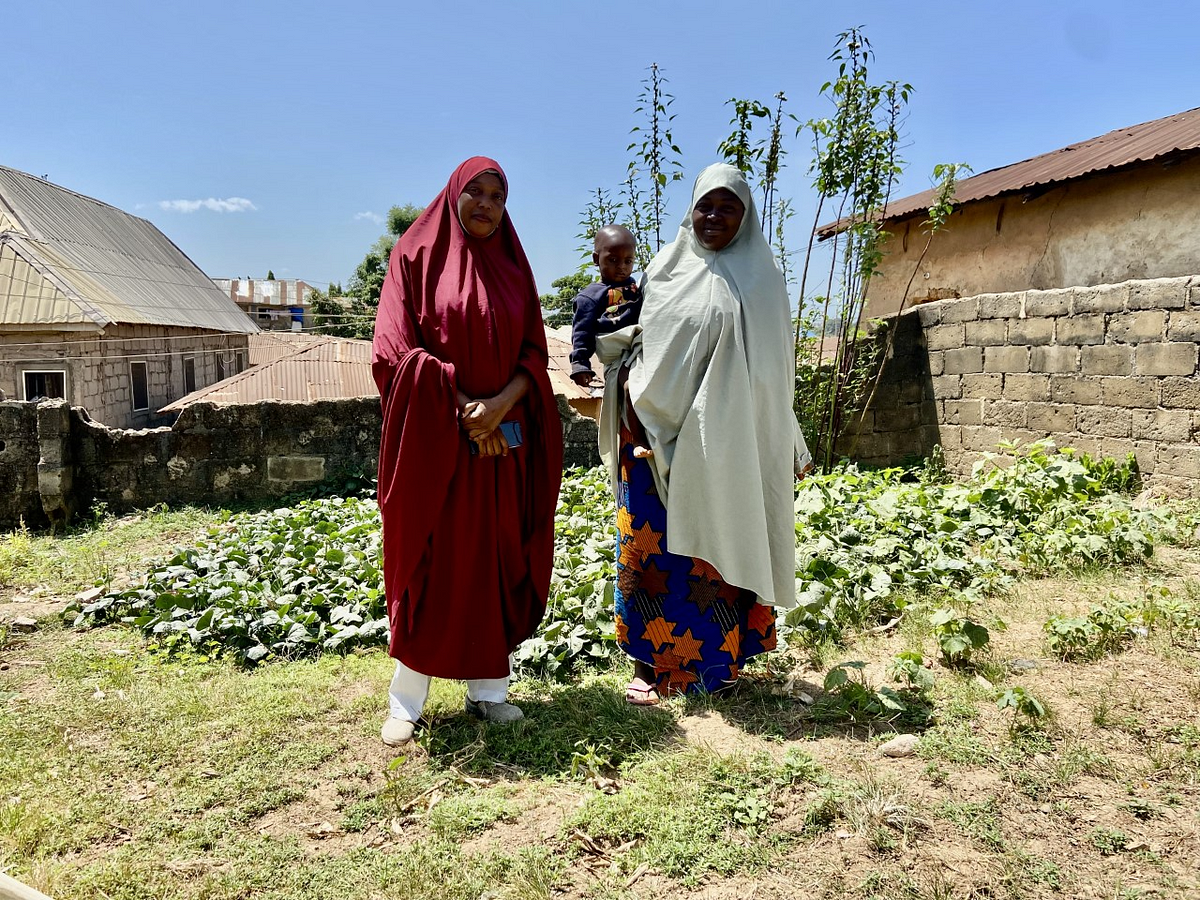
According to the NDHS 2018, 44% of women of reproductive age (16–49 years) in Kaduna State are anaemic. These women are at risk of developing complications during and after pregnancy, in addition to giving birth to malnourished children. Initiatives such as ANRiN provide an opportunity for women of childbearing age to appreciate the benefits of locally sourced nutritious foods, which in turn ensures that pregnant and breastfeeding mothers go through a healthy antenatal and postnatal period and give birth to healthy children. The project advocates for child spacing as a way of improving the nutritional status of women and children. This approach could be described as using one stone to kill two birds.
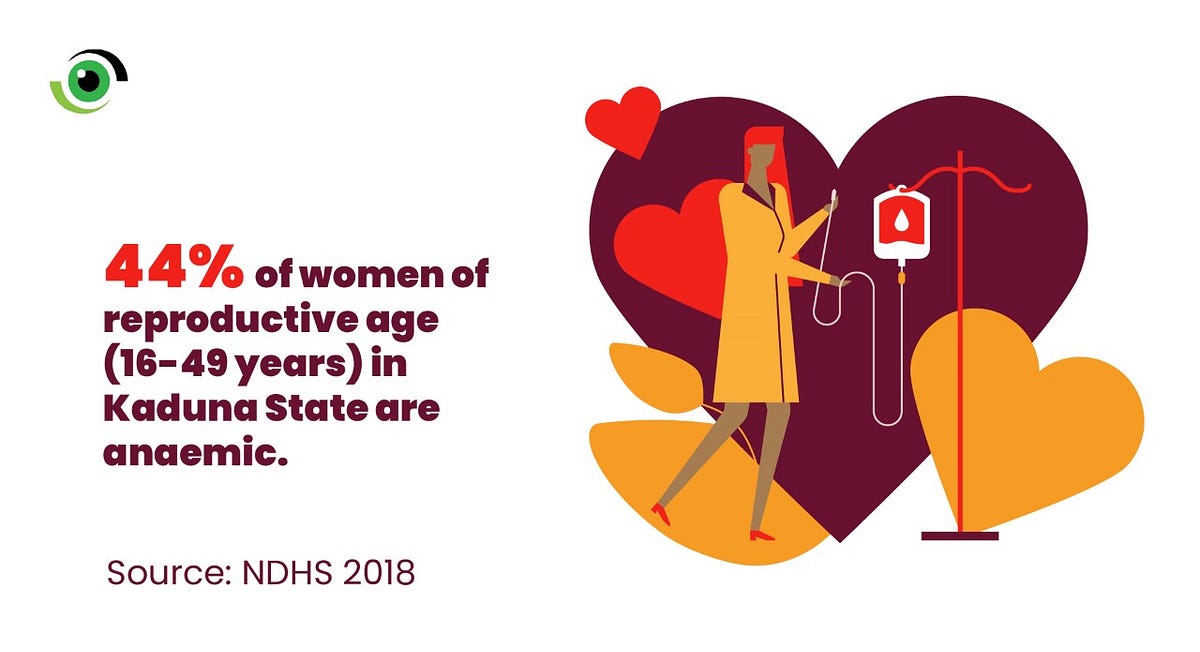
Impact of economic status on nutrition
Alongside its counselling and monitoring services, ANRiN should consider improving the social and economic status of the beneficiaries. Simply providing counselling and nutritional supplements may not be enough to improve their nutrition levels in a country where 40% of the population live below the poverty line, in addition to the high economic and social inequities faced by the women. For these women, even the locally sourced nutritious alternatives are out of reach as they most likely have no source of income. If ANRiN supports the women to become financially independent, it would maximise the project’s impact, as the women would then be able to afford nutritious food for themselves and their children.
ANRiN is one of the many interventions being implemented in Nigeria to scale up the worsening malnutrition situation in the country. In January 2021, the National Council on Nutrition approved the “National Multi-Sectoral Plan of Action for Food and Nutrition (NMPFAN) 2021–2025, a 5-year nutrition action plan that will guide the implementation of interventions and programmes to address the problems of hunger and malnutrition across all sectors in Nigeria. There is also the ongoing National Food Consumption and Micronutrient Survey (NFCMS), 2020–2022, which is assessing the micronutrient status and dietary intake of women of reproductive age, pregnant and lactating women, children 6–59 months, etc., to identify key factors associated with poor nutrition in these populations. The information generated should provide the necessary evidence to aid the formulation of informed and people centred policies and programs.


